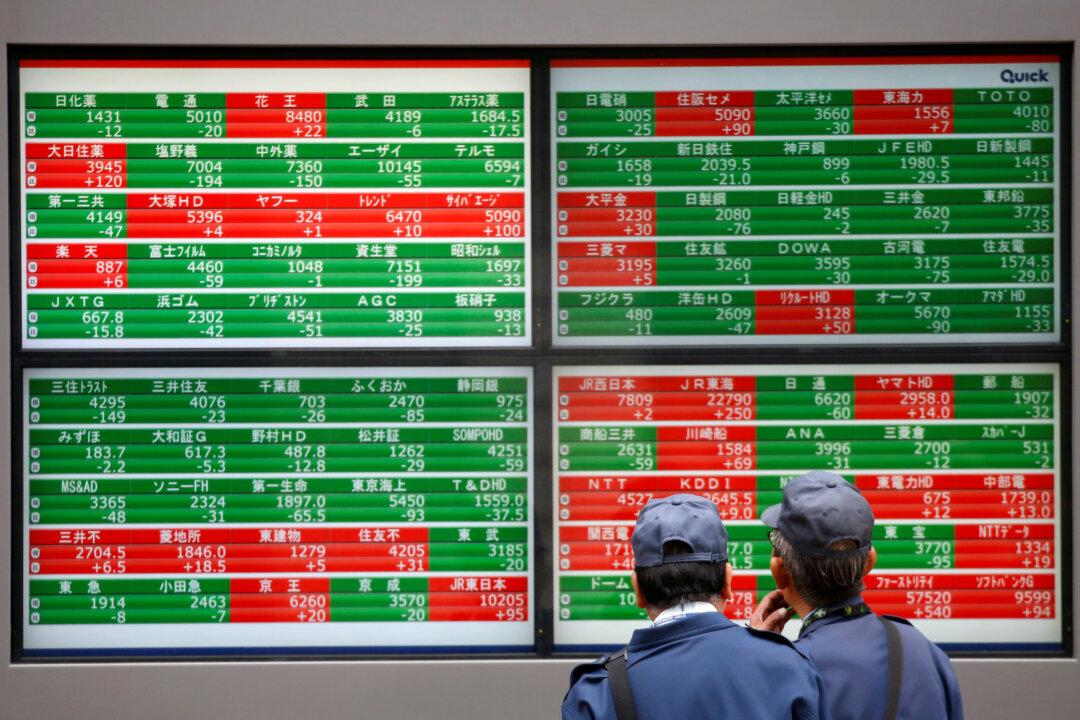TOKYO—Stocks extended their slump in early Asian trade on Dec. 10, with U.S. equity futures off to a softer start for the week after prolonged silence from China last week on what was agreed to in the tariff truce meeting with the United States battered investor sentiment.
S&P futures were down 0.6 percent and the Dow futures lost 0.7 percent, while Australian stocks declined 0.9 percent.





